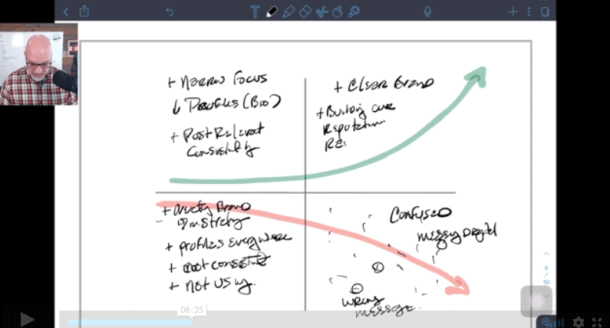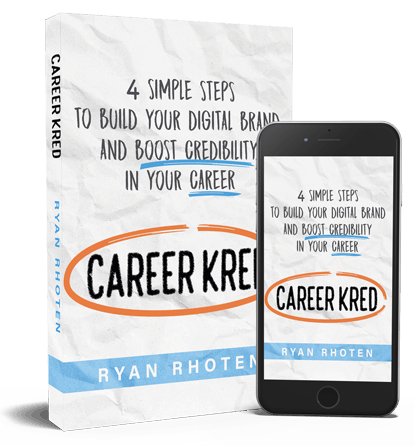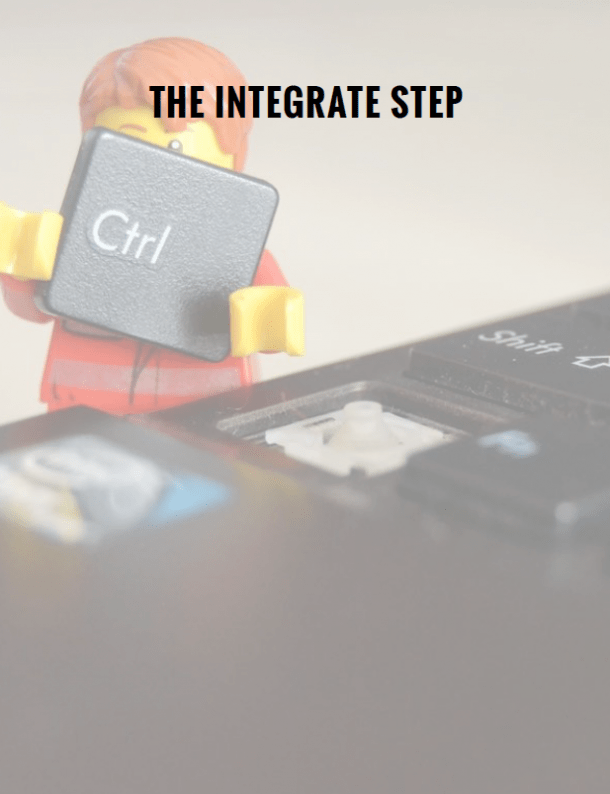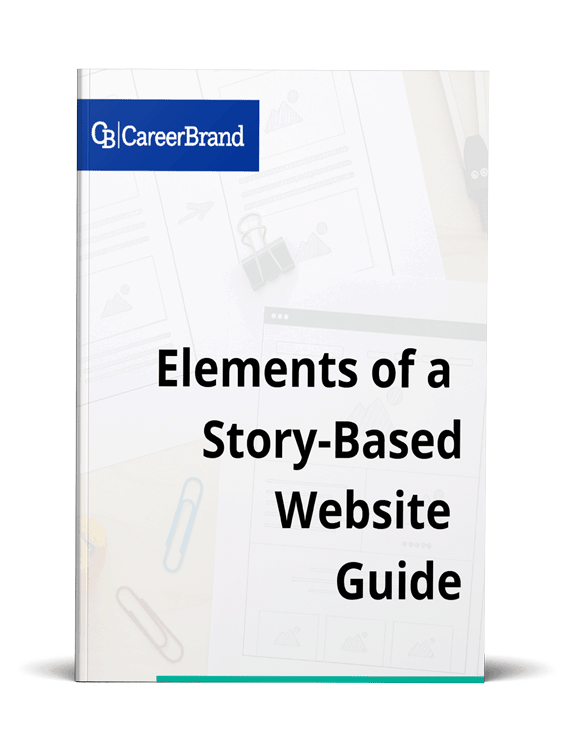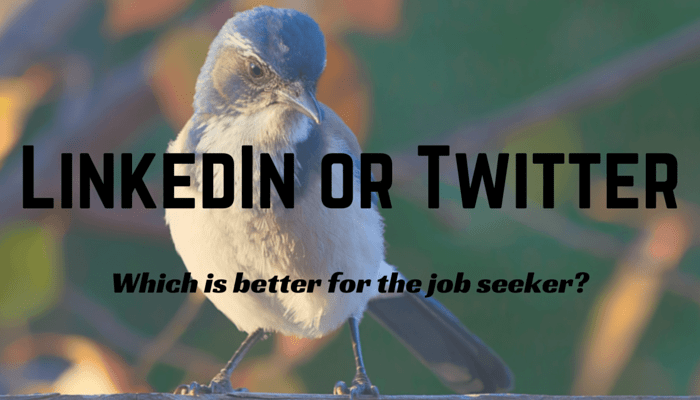
I had a podcast listener ask me via email last week what I thought the best tool was for today’s job seeker, Twitter or LinkedIn. Without hesitation, I responded Twitter.
Yes, recruiters and hiring managers use LinkedIn to find candidates. Yes, LinkedIn is great for getting found. And, of course, LinkedIn is even good for networking.
But that’s where the party ends for most users.
If you want to build rapport and demonstrate your thought leadership with your connections on LinkedIn (or LI in Twitter speak), you have to move offline and into InMail.
Outside of commenting on posts, there are few opportunities to build rapport and add value to others within LI.
Twitter, on the other hand, is like a non-stop party. There’s a constant conversation about a multitude of topics to the tune of 500 million tweets per day.
There’s even discussions centered around the topics for which you are a subject matter expert.
Unfortunately, most job seekers either don’t have an account, don’t use it or don’t know how to use it properly.
I’m a fan of Twitter but this wasn’t always the case.
Like many of you reading this, I was initially skeptical of the platform and wondered out loud, “What was the point?”
What value can you possibly communicate in 140 characters? Turns out quite a bit.
WHAT IS TWITTER
According to Twitter, it is:
“An online social networking service that enables users to send and read short 140-character messages called “tweets”.
And a Tweet is:
“an expression of a moment or idea. It can contain text, photos, and videos.”
Twitter allows you to share your thoughts, your ideas and your subject matter expertise with the world in 140-characters or less. Or at least, you can share with those who follow you.
So why would I give such high marks to a platform which only allows you to send a message in 140 characters? The answer lies in Twitter’s mission.
On Twitter’s website they say their mission is:
“To give everyone the power to create and share ideas and information instantly, without barriers.”
It’s these two words, “without barriers”, that make Twitter the indispensable tool for your job search.
This is where, in my opinion, Twitter has a distinct advantage over LI and why I recommend everyone use it as a job search tool.
3 REASONS TO USE TWITTER IN YOUR JOB SEARCH
Demonstrate Expertise
Twitter is all about adding value and you can add value in a number of ways.
You can tweet about the content you create. You can tweet about the content you curate. You can even retweet or quote tweet content you find from others on Twitter.
All of these activities indicate to others your interest in a subject matter or area of expertise. If you do these activities often, you will start to become associated with a keyword or industry.
When this happens you become the Google of your niche.
While these activities are effective at helping others understand your interests, the single best way you can add value to the Twitter community and demonstrate your expertise is by participating in Twitter chats.

Twitter Chats
For those who don’t know what a Twitter chat is, check out my interviews with Mark Babbitt, Madalyn Skylar, and Maria Duron. All three run very successful and highly engaging Twitter chats: #internpro, #Twittersmarter, #brandchat respectively.
Twitter chats allow you to actively participate in a conversation about your area of expertise. This gives you the opportunity to demonstrate your knowledge and thought leadership while adding value to all participants.
With a little effort, you can find hiring managers and the chats they participate in (assuming, of course, they have a Twitter account). Once you know about the chat, show up and participate. Answer questions and leave comments.
Your answers will help others understand how you think about a given topic and provide insight into your personality and your potential. If you provide enough value, you will capture the attention of the hiring manager.
One thing to note.
You do not need an invitation to participate in a Twitter chat. Just jump in and start adding value. People will welcome you even if you’ve never participated in the chat before.
Here are a few chats I have on my calendar that I recommend, follow or participate in:
#blogelevated #twittersmarter #brandchat #hootchat #bufferchat #internpro #infleuencerchat #bufferchat #peopleskills #pocchat
Twitter chats also are a great place to find like-minded people and build meaningful relationships.
Build Relationships
The real benefit of Twitter for me is the networking and building relationships. Being able to reach out and meet people I don’t know who share common interests and ideas is simply awesome.
At our fingertips, we have the power to meet people from across the country and around the world.
This presents us with the opportunity to interact with many different viewpoints and personalities to help us formulate and refine our own thinking.
I have met some truly amazing people via Twitter. People whom I admire and look to for their insights and thoughts on a particular topic.
A year ago, I would never have dreamed I could springboard a Twitter relationship into an actual offline conversation, yet I have with several people.
And that’s the one thing about Twitter. Twitter is about the conversation. It’s not about a conversion.
This conversation happens organically by the content you share and the comments you make during Twitter chats. You don’t have to force it.
If you use Twitter in the spirit of adding value, of giving without getting, and approach it with the mindset of conversation, not conversion, you will build strong relationships with people across the world.
So how does this help the job seeker? It allows you to build relationships with the gatekeepers long before you need them.

Bypass the Gatekeepers
It wasn’t long ago that if you wanted a job at a particular company, you essentially had two options, apply online or bug your neighbor who happens to work at the company.
I’ll skip the neighbor discussion and move right to the first option of applying online. This not only puts your resume in the stack of hundreds, if not thousands of other resumes, but it also puts you against the dreaded Applicant Tracking System.
Applicant Tracking System (ATS) software applications ruthlessly bat away candidates by the hundreds before a human even sees it.
The reasons for the rejection are usually not “meeting” the criteria as defined by the hiring manager.
ATSs are programmed to look for specific criteria such as keywords, skills, former employers, years of experience and schools attended and who knows what else.
As the gatekeeper for most companies recruitment process, ATS applications serve as the first line of defense and they are very good at keeping “non-qualified” candidates out. This is exactly why the knowledgeable job seekers need to turn to Twitter.
Twitter is like the fast pass at the amusement park. It allows you to bypass the gatekeepers and go directly to the hiring manager.
If have participated in Twitter chats and you’ve been strategic by adding value through your content, there’s a good chance you’ve caught the attention of the hiring manager.
Since you know Twitter is about a conversation, not a conversion, you’ve probably taken the time to build a relationship with the hiring manager in subsequent interactions.
If this is the case, your Twitter relationship could turn you into a warm and potentially even a hot lead for the hiring manager. If the position is aligned with the topics you’ve been conversing about, the hiring manager might even think of your name when posting the position.
A word of caution here. Skipping ahead to the hiring manager may take you months of interactions, so don’t wait until the last-minute.
They say the best time to get a new job is when you already have one. So join the conversation today. Who knows where it will lead you.
QUESTION: What are your thoughts? Let’s hear them in the comments below.
